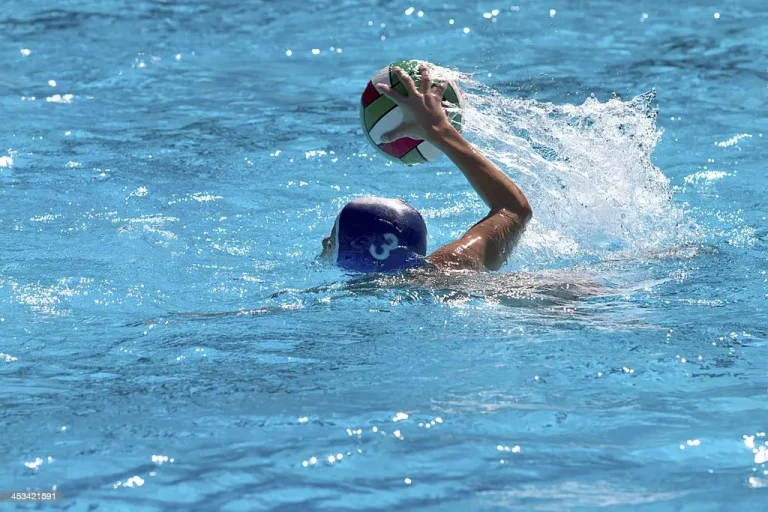Around what age do baseball players start to retire
Are you a fan of baseball? If so, you’ve probably wondered about the retirement age of your favorite players. Baseball has captivated audiences for decades with its rich history, fierce competition, and moments of pure athleticism. But have you ever stopped to ponder when these incredible athletes decide to hang up their cleats and retire from the game? In this article, we’ll explore the factors that influence the retirement age of baseball players, shedding light on the question, “Around what age do baseball players start to retire?”
Factors Influencing Retirement Age in Baseball
Physical Factors
As a baseball player, the physical demands of the sport undoubtedly impact my career longevity. The toll on my body becomes increasingly evident as I age. The repetitive motions, such as pitching, swinging, and running, take a toll on joints, muscles, and ligaments. With each passing season, the risk of injuries tends to rise, making it crucial to prioritize injury prevention and recovery. To maintain peak performance and extend my career, I must commit to rigorous training, conditioning, and rehabilitation programs.
Performance and Skill Level
My performance on the field plays a significant role in determining when I retire from baseball. As I age, there is an increasing pressure to maintain high levels of performance, especially as younger, talented players emerge. If my skills decline and I find myself receiving reduced playing time, the decision to retire may become more imminent. The desire to leave the game while still being able to compete at a high level can be a motivating factor for retirement.
Financial Considerations
Retirement in baseball also involves careful consideration of the financial aspect. Accumulated wealth and financial stability can greatly influence the timing of retirement decisions. The financial security attained through successful contracts, endorsements, and investments may allow me to retire earlier if I choose to do so. On the other hand, if financial circumstances are less favorable, I may need to continue playing for longer to secure my future beyond the game. Contract negotiations and salary also play a role in retirement timing, as they impact a player’s financial stability and long-term planning.
Personal Motivations and Goals
Beyond the physical and financial aspects, personal motivations and goals greatly influence the decision to retire from baseball. As a player, I have personal aspirations and dreams that extend beyond the sport. Whether it’s pursuing other interests, starting a new career, or spending more time with family, these personal factors can weigh heavily in my retirement decision. Additionally, personal satisfaction and mental well-being play a significant role. If I no longer find joy or fulfillment in the game, it may be time to consider retiring and exploring new avenues in life.
Historical Trends and Retirement Age
Examine historical data to identify trends in the retirement age of baseball players.
Looking at historical data, I can identify trends in the retirement age of baseball players. Over the years, there has been a gradual increase in the average retirement age. This can be attributed to advancements in sports medicine, training methods, and overall player fitness. Players are now able to maintain their performance levels and extend their careers beyond what was once considered the norm.
Compare retirement ages across different eras and positions.
When comparing retirement ages across different eras and positions, interesting patterns emerge. In the past, players often retired in their mid-30s, with pitchers having shorter careers compared to position players. However, in recent years, we see players continuing to play well into their late 30s and even 40s. This can be attributed to a greater emphasis on conditioning, nutrition, and injury prevention, allowing players to defy age-related decline and prolong their careers.
Discuss any notable outliers or players who retired at a particularly young or old age.
While most players retire within a certain age range, there are notable outliers who retired at particularly young or old ages. For example, some players retire in their early 30s due to career-ending injuries or declining performance. On the other hand, there are legendary players who have played well into their 40s, showcasing exceptional longevity and skill. These outliers highlight the unique circumstances and individual factors that can influence retirement age in baseball.
Case Studies of Noteworthy Retirements
Young Retirements
Let’s delve into the case studies of players who retired at a relatively young age and explore their reasons. Some players, despite their talent and potential, have chosen to retire early due to various factors. Injuries play a significant role in these early retirements, as players may face chronic pain or recurring injuries that hinder their performance and overall well-being. Burnout is another factor, with some players feeling mentally and physically exhausted from the demands of the game. Additionally, personal circumstances such as family commitments or pursuing other career opportunities can also influence the decision to retire early.
Late Career Retirements
Now, let’s shift our focus to players who continued their careers well into their late 30s and beyond. These players have showcased remarkable longevity, and several factors contribute to their ability to extend their playing careers. One crucial factor is maintaining physical fitness and adapting training routines to accommodate the aging body. Experience and wisdom gained over years of playing also play a significant role, as these players have developed a deep understanding of the game and can make strategic decisions that compensate for any physical decline. Ultimately, the decision to retire late in their career may be influenced by a combination of factors, including personal goals, family considerations, and a desire to leave the game on their own terms.
The Evolution of Retirement Age
Discuss how retirement age in baseball has evolved over time.
The retirement age in baseball has undergone significant changes over the years. In the past, it was common for players to retire in their mid-30s due to a combination of physical decline and the lack of advancements in sports medicine and training methods. However, with the advent of new technologies and a better understanding of player conditioning, retirement ages have steadily increased. Nowadays, it is not uncommon to see players thriving well into their late 30s and even 40s, thanks to improved training regimens, nutrition, and injury prevention techniques.
Explore the impact of advancements in training, technology, and sports medicine.
Advancements in training, technology, and sports medicine have played a pivotal role in extending the retirement age of baseball players. Players now have access to cutting-edge training facilities, personalized strength and conditioning programs, and state-of-the-art equipment. Additionally, advances in sports medicine have allowed for better injury prevention and rehabilitation, enabling players to recover more quickly and effectively. These advancements have contributed to the overall health and longevity of players, allowing them to remain competitive and extend their careers.
Highlight the changing dynamics of the game and the increasing emphasis on youth.
The dynamics of the game have also played a role in the evolution of retirement age in baseball. With the increasing emphasis on youth and the desire for teams to have a competitive edge, older players may find themselves facing more competition from younger, up-and-coming talents. This has led to a greater focus on player performance and the need for older players to demonstrate their continued value. As a result, players are motivated to maintain their fitness and skills at a higher level, leading to extended careers and later retirements.
Technical FAQs: Retirement Age in Baseball
Around what age do baseball players start to retire?
Retirement age in baseball can vary, but it is common for players to retire in their mid-30s to early 40s, depending on factors such as performance, injuries, and personal circumstances.
What factors influence the retirement age of baseball players?
Several factors can influence the retirement age of baseball players, including physical decline, injuries, personal goals, family considerations, and the competitive landscape of the game.
Do advancements in training and sports medicine impact retirement age?
Yes, advancements in training, technology, and sports medicine have contributed to extending the retirement age of baseball players by improving player conditioning, injury prevention, and rehabilitation techniques.
How has the retirement age in baseball evolved over time?
The retirement age in baseball has increased over time, thanks to advancements in training, sports medicine, and a better understanding of player conditioning, allowing players to compete at a higher level for longer periods.
Is there an increasing emphasis on youth affecting retirement age in baseball?
Yes, there is an increasing emphasis on youth in baseball, which has led to older players facing more competition. This has motivated players to maintain their skills and fitness, resulting in extended careers and later retirements.
Conclusion:
The retirement age of baseball players is not set in stone but rather influenced by a myriad of factors. Physical factors, performance and skill level, financial considerations, and personal motivations all play a role in the decision-making process. It’s important to recognize that retirement age in baseball is a highly individualized and fluid concept. While some players may retire in their early 30s due to injury or declining performance, others may continue well into their late 30s or even beyond. Ultimately, the decision to retire is dependent on multiple factors unique to each player. So, the next time you find yourself wondering about the retirement age of a baseball player, remember that it’s a complex equation shaped by a combination of physical, personal, and professional factors.



